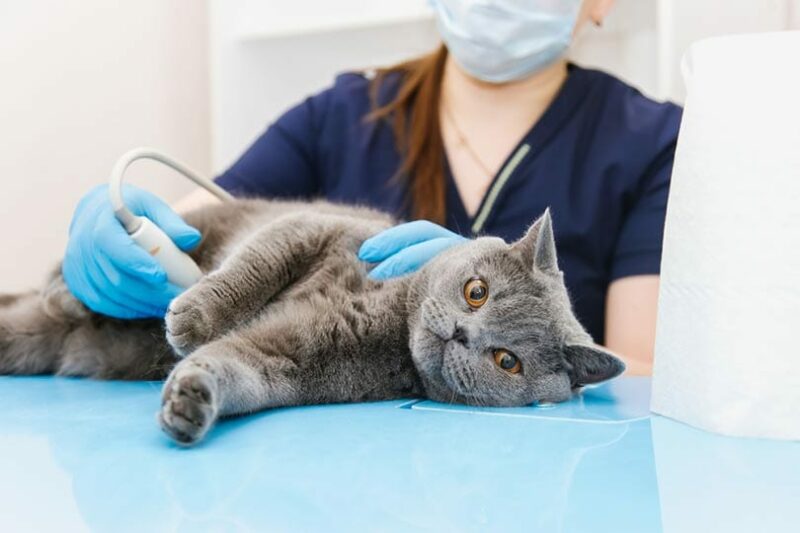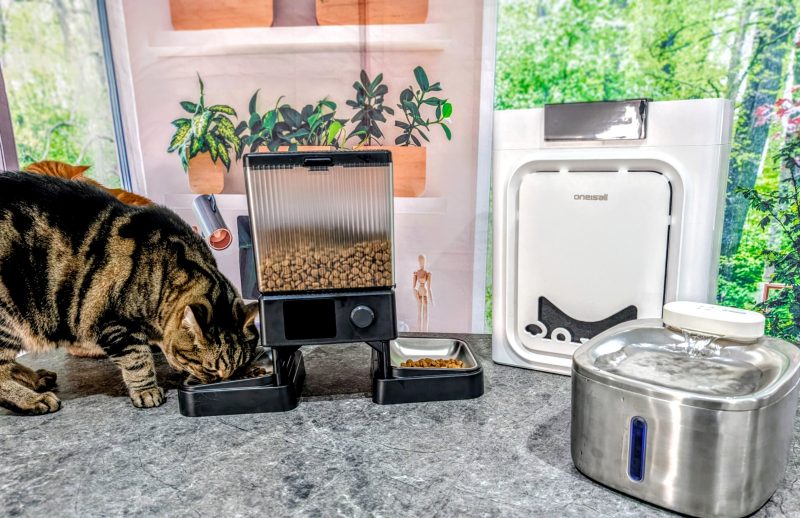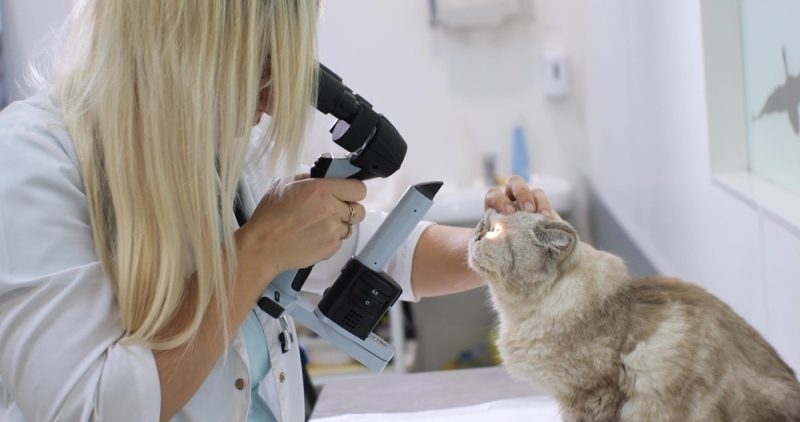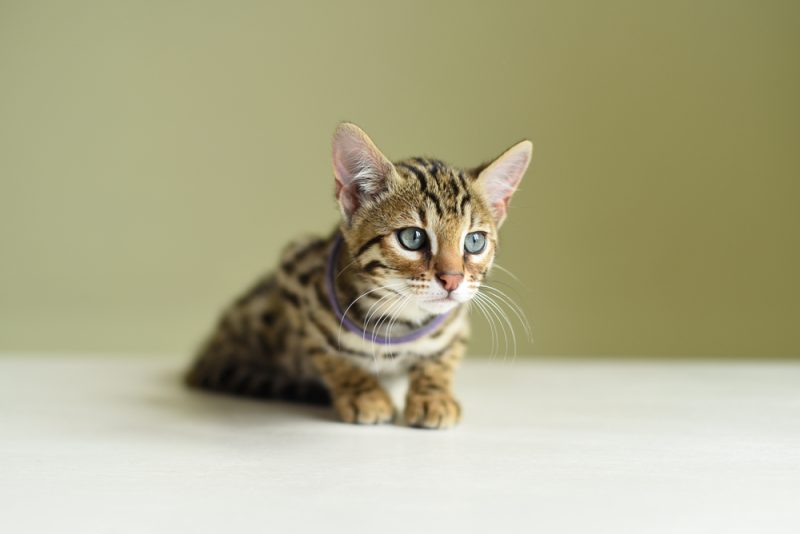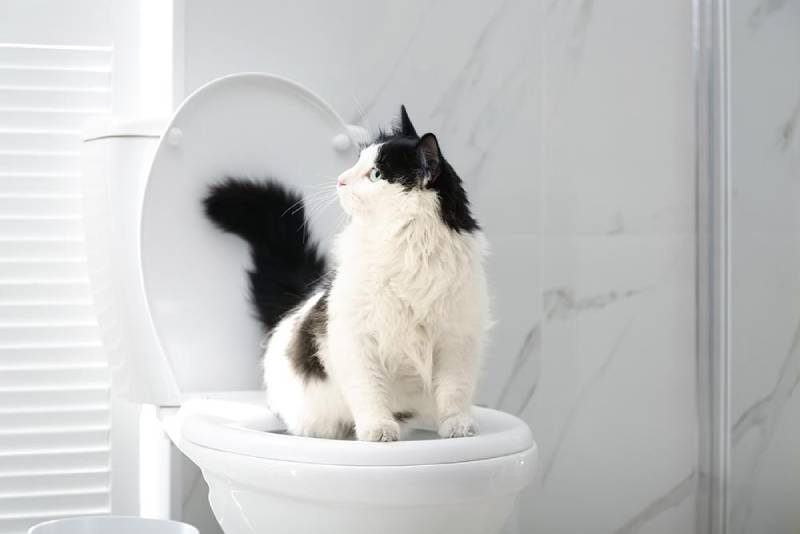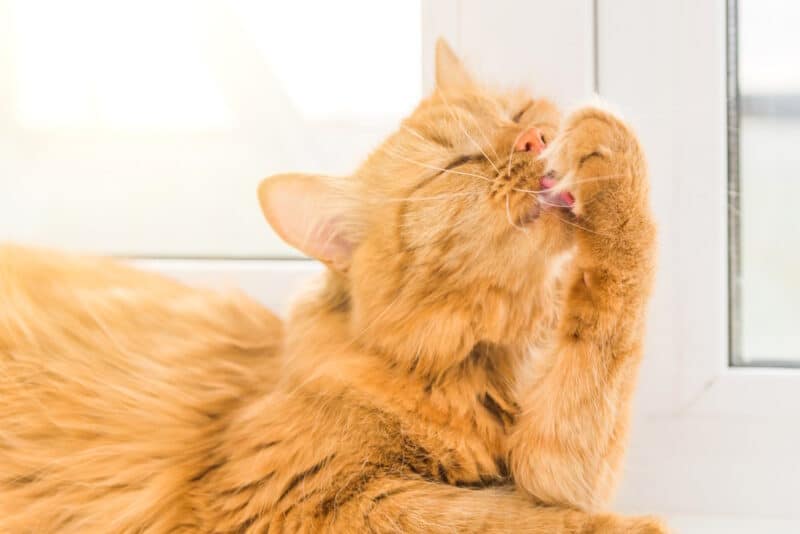In this article
Veterinary care can be expensive. Whether your cat needs an ultrasound for reasons related to pregnancy or a medical condition, there can be some hefty expenses associated with the procedure. The cost varies depending on the type of ultrasound, your location, and other potential additional expenses. In general, a cat ultrasound can cost between $200 and $500 or more, depending on where you live.
To learn more about the cost of an ultrasound for your cat, keep reading below.

The Importance of Feline Ultrasounds
An ultrasound, also known as sonography, is an imaging method that uses sound waves to create a picture of the structures within your cat’s body. Ultrasounds are often used to evaluate the progress of a pregnancy; however, that is not their only use. They are also extremely useful diagnostic tools.
When your cat is struggling with internal health complications, ultrasounds are a painless and noninvasive way to gather information. Veterinary professionals can use ultrasounds to examine your cat’s internal structures, including shape, size, and even texture.
Many medical conditions are difficult to see from the outside. Cats do their best to disguise their pain, as it is their instinct to mask discomfort. If your vet suspects that something is wrong internally, they may recommend an ultrasound to evaluate the status of your cat’s body.
Health complications that may require an ultrasound to discover include cancer, kidney disease, and liver disease. These devastating conditions require immediate care and treatment, so diagnosing them quickly is vital. For this reason, an ultrasound may be a crucial tool for saving your cat’s life.
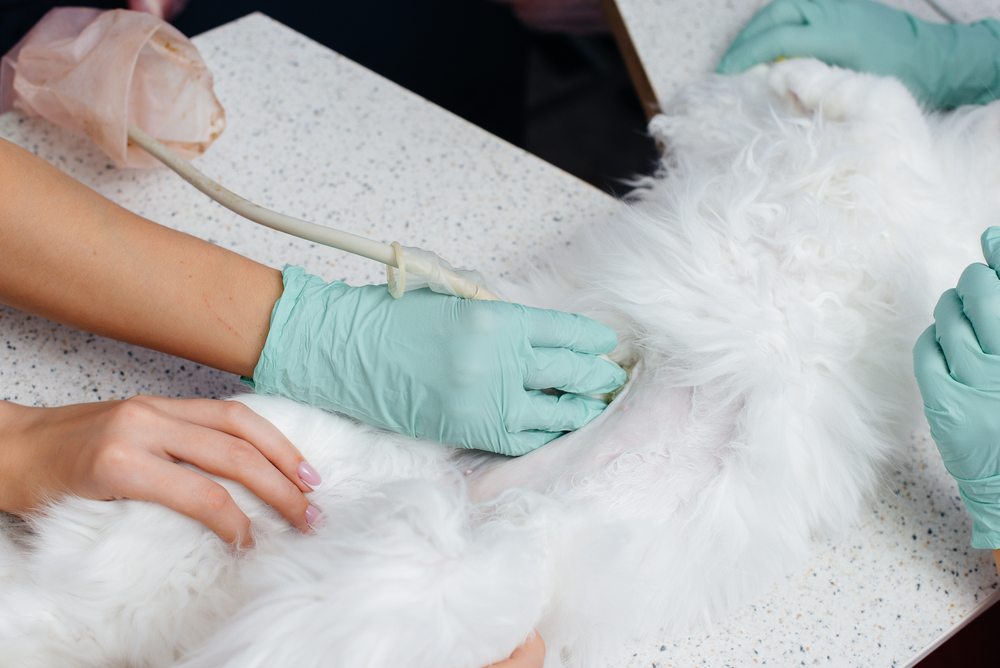
How Much Does an Ultrasound Cost?
A number of factors may determine the cost of an ultrasound. The average is expected to range from $200 to $500. The type of ultrasound your cat will undergo can influence the price. The more complicated or in-depth the ultrasound, the more expensive it will be.
For instance, echocardiograms or an ultrasound of the heart are likely to cost more. Abdominal ultrasounds are the same. On the other hand, ultrasounds for pregnancies often take less time, so they are not as expensive. Likewise, ultrasounds covering only a singular organ (such as the liver or bladder) may also be cheaper.
The expertise of the veterinary professional may also impact the cost. If a general practitioner performs the ultrasound, the cost is likely to be cheaper. However, if a specialist does the ultrasound, the price will likely go up because the ultrasound may be more in-depth or may include additional procedures such as a biopsy.
Location is another significant factor in determining ultrasound prices. Cat owners in the city are likely to see higher rates than those in rural areas. Likewise, different regions of the country will also have different prices for their ultrasounds. To better understand the variation between different regions, here are some comparisons that show how the prices may range depending on where you are in the United States:
| City | Price |
| Boise, ID | $189–$250 |
| Jarrettsville, MD | $250–$350 |
| Austin, TX | $300–$500 |
| Jacksonville, FL | $315 |
| San Jose, CA | $475–$675 |
Additional Costs to Anticipate
If you anticipate your cat needing an ultrasound, ensure you are prepared to handle any other possible expenses.
These additional expenses will undoubtedly include consultation fees. A veterinarian must examine your cat before recommending an ultrasound, so the cost of the visit and any follow-up visits will be an additional expense to consider.
Another possible expense may be additional tests, including X-rays, physical exams, and blood tests to look for issues in organs like the pancreas, spleen, or liver. The prices of these tests will vary depending on which test is performed and if multiple tests are performed.
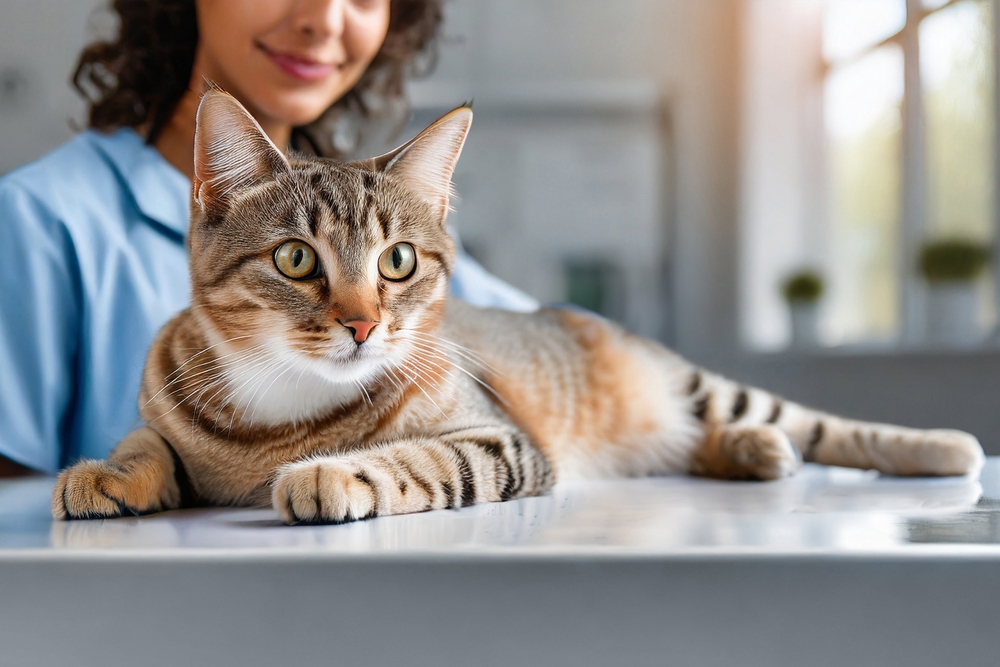
Your cat may need to be sedated during an ultrasound. This is not a standard requirement, but it may be necessary if your cat is too stressed or anxious to allow the test to be performed. If your cat needs a sedative, the price will increase.
When the ultrasound is done, there may be a chance that your cat needs to stay in the hospital for additional treatment. In that instance, there will be an added hospitalization fee. The price will vary depending on the required treatment and how long your cat needs to remain hospitalized.

When Are Ultrasounds Necessary?
There are several reasons that an ultrasound may be necessary. They are often used to evaluate pregnancies, thyroid glands, ligaments and tendons, and eyes. Ultrasounds are also performed to examine soft tissues within the body and evaluate heart conditions. Ultrasounds for heart conditions may be done by a general practitioner or a cardiologist. The cardiologist will be more expensive.
Abnormalities in your cat’s urine or blood tests may also lead to an ultrasound. This is because the ultrasound will allow for visualization of your cat’s internal organs so that your vet can see the cause of these abnormalities.
If your cat has swallowed a foreign body, an ultrasound may be used to detect it. Objects that your cat may have ingested, such as cloth or plastic, may not always be caught by X-rays. However, ultrasound can pick these foreign bodies up more easily. This will also help your vet determine whether emergency medical care needs to be given.
There are also instances in which an emergency will require an ultrasound for diagnosis. If your cat has internal hemorrhaging, for instance, an ultrasound can confirm that and help medical professionals devise a plan of action.

Does Pet Insurance Cover Ultrasounds?
The costs associated with ultrasounds may seem daunting, but thankfully, pet insurance normally provides coverage for this exam. However, whether your pet insurance covers it may depend on the reason for the ultrasound.
Some pet insurance policies do not cover pregnancy-related expenses. If you are enrolled in an insurance plan that does not offer pregnancy coverage, you will have to manage any pregnancy-related ultrasound expenses on your own.
But if the ultrasound is done due to an accident or illness, there is a good chance that your pet insurance will cover it. If you are uncertain, be sure to verify this with your insurance provider.

What to Expect Before and After an Ultrasound
Depending on the ultrasound being performed, some preparation may be needed. For instance, with abdominal ultrasounds, your cat may need to have food withheld for 12 hours before the examination. However, in most instances, no preparation is necessary. Your veterinarian will tell you what is required.
After the ultrasound, you will generally have the results right away. The images are created and evaluated in real-time. However, in unique instances, imaging may be sent to a specialist for additional consultation. In those cases, it may take several days for you to hear the results.

Conclusion
Ultrasounds can evaluate what is happening inside your cat’s body. They are helpful imaging tools that can provide you and your vet with immediate answers to any concerns with your cat’s health, paving the way for a treatment plan to be made. Pet insurance will help cover the costs in many cases; however, it varies depending on the purpose of the exam.
While ultrasounds can be expensive, they are vital to diagnosing issues in your cat and may even save their life.
- Related Read: What is the Cost of a Cat X-Ray? Complete Price Guide
Featured Image Credit: Libre, Shutterstock
